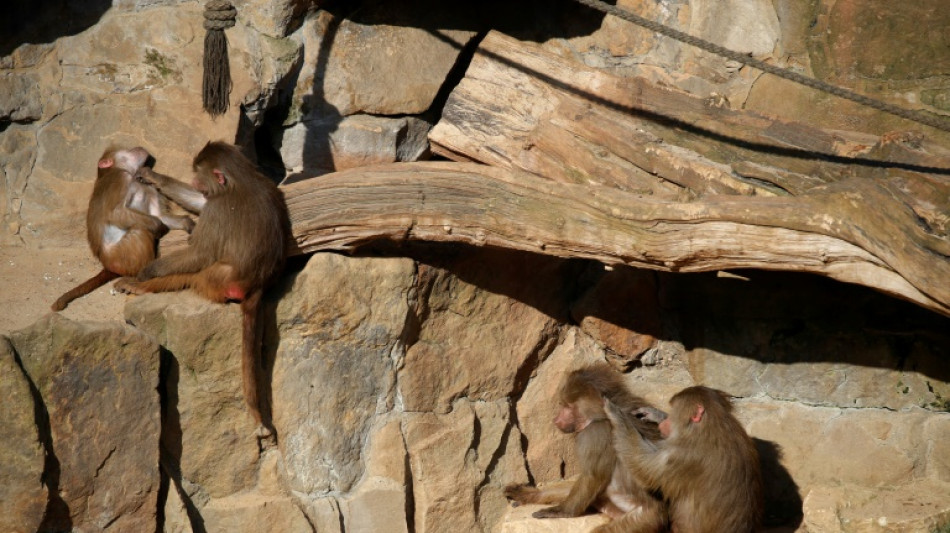
-
 India's Bollywood counts costs as star fees squeeze profits
India's Bollywood counts costs as star fees squeeze profits
-
McCullum admits errors in Ashes preparations as England look to salvage pride

-
 Pets, pedis and peppermints: When the diva is a donkey
Pets, pedis and peppermints: When the diva is a donkey
-
'A den of bandits': Rwanda closes thousands of evangelical churches

-
 Southeast Asia bloc meets to press Thailand, Cambodia on truce
Southeast Asia bloc meets to press Thailand, Cambodia on truce
-
As US battles China on AI, some companies choose Chinese

-
 AI resurrections of dead celebrities amuse and rankle
AI resurrections of dead celebrities amuse and rankle
-
Steelers receiver Metcalf strikes Lions fan

-
 Morocco coach 'taking no risks' with Hakimi fitness
Morocco coach 'taking no risks' with Hakimi fitness
-
Gang members given hundreds-years-long sentences in El Salvador
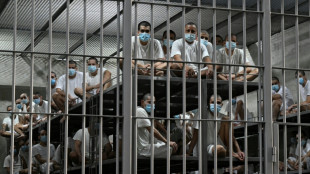
-
 Chargers, Bills edge closer to playoff berths
Chargers, Bills edge closer to playoff berths
-
Gang members given hundred-years-long sentences in El Salvador
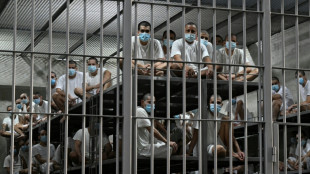
-
 Hosts Morocco off to winning start at Africa Cup of Nations
Hosts Morocco off to winning start at Africa Cup of Nations
-
No jacket required for Emery as Villa dream of title glory

-
 Amorim fears United captain Fernandes will be out 'a while'
Amorim fears United captain Fernandes will be out 'a while'
-
Nigerian government frees 130 kidnapped Catholic schoolchildren

-
 Captain Kane helps undermanned Bayern go nine clear in Bundesliga
Captain Kane helps undermanned Bayern go nine clear in Bundesliga
-
Captain Kane helps undermanned Bayern go nine clear

-
 Rogers stars as Villa beat Man Utd to boost title bid
Rogers stars as Villa beat Man Utd to boost title bid
-
Barca strengthen Liga lead at Villarreal, Atletico go third

-
 Third 'Avatar' film soars to top in N. American box office debut
Third 'Avatar' film soars to top in N. American box office debut
-
Third day of Ukraine settlement talks to begin in Miami

-
 Barcelona's Raphinha, Yamal strike in Villarreal win
Barcelona's Raphinha, Yamal strike in Villarreal win
-
Macron, on UAE visit, announces new French aircraft carrier

-
 Barca's Raphinha, Yamal strike in Villarreal win
Barca's Raphinha, Yamal strike in Villarreal win
-
Gunmen kill 9, wound 10 in South Africa bar attack

-
 Allegations of new cover-up over Epstein files
Allegations of new cover-up over Epstein files
-
Atletico go third with comfortable win at Girona

-
 Schwarz breaks World Cup duck with Alta Badia giant slalom victory
Schwarz breaks World Cup duck with Alta Badia giant slalom victory
-
Salah unaffected by Liverpool turmoil ahead of AFCON opener - Egypt coach

-
 Goggia eases her pain with World Cup super-G win as Vonn takes third
Goggia eases her pain with World Cup super-G win as Vonn takes third
-
Goggia wins World Cup super-G as Vonn takes third

-
 Cambodia says Thai border clashes displace over half a million
Cambodia says Thai border clashes displace over half a million
-
Kremlin denies three-way US-Ukraine-Russia talks in preparation

-
 Williamson says 'series by series' call on New Zealand Test future
Williamson says 'series by series' call on New Zealand Test future
-
Taiwan police rule out 'terrorism' in metro stabbing

-
 Australia falls silent, lights candles for Bondi Beach shooting victims
Australia falls silent, lights candles for Bondi Beach shooting victims
-
DR Congo's amputees bear scars of years of conflict

-
 Venison butts beef off menus at UK venues
Venison butts beef off menus at UK venues
-
Cummins, Lyon doubts for Melbourne after 'hugely satsfying' Ashes
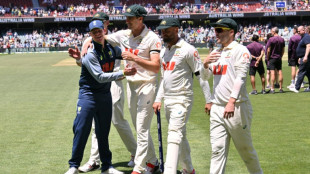
-
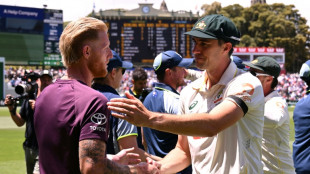 'It sucks': Stokes vows England will bounce back after losing Ashes
'It sucks': Stokes vows England will bounce back after losing Ashes
-
Australia probes security services after Bondi Beach attack
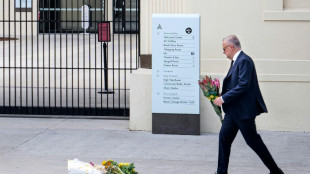
-
 West Indies need 462 to win after Conway's historic century
West Indies need 462 to win after Conway's historic century
-
Thai border clashes displace over half a million in Cambodia
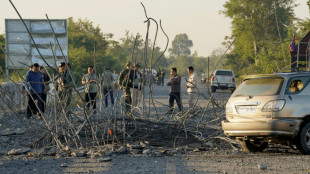
-
 Australia beat England by 82 runs to win third Test and retain Ashes
Australia beat England by 82 runs to win third Test and retain Ashes
-
China's rare earths El Dorado gives strategic edge

-
 Japan footballer 'King Kazu' to play on at the age of 58
Japan footballer 'King Kazu' to play on at the age of 58
-
New Zealand's Conway joins elite club with century, double ton in same Test

-
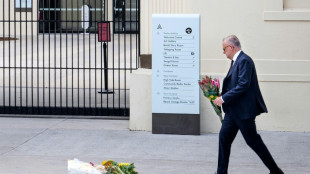 Australian PM orders police, intelligence review after Bondi attack
Australian PM orders police, intelligence review after Bondi attack
-
Durant shines as Rockets avenge Nuggets loss
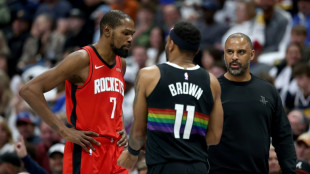

Adult friends help baboons conquer childhood trauma
Like humans, baboons get by with a little help from their friends.
Forming close social bonds as adults helps the primates triumph over childhood adversity and live longer, according to a new study.
The paper, published in Science Advances on Wednesday, drew on 36 years of data from nearly 200 of the Old World monkeys in the Amboseli National Park, in southern Kenya.
"It's like the saying from the King James Apocrypha, 'a faithful friend is the medicine of life,'" senior author Susan Alberts, a professor of biology and evolutionary anthropology at Duke University, said in a statement.
Baboons who had challenging youths were able to reclaim two years of life expectancy by forming close friendships, the study showed.
Research in humans has found that people who experience early trauma, such as having an alcoholic parent or growing up in an abusive home, are more likely to face an early grave.
But because these experiences are subjective and people's memories of the past are imperfect, wild primates, which share more than 90 percent of our DNA, are thought to be useful study subjects for better understanding humans.
For their research, Alberts and her co-authors focused on female baboons and tracked exposures to sources of childhood hardships, such as being born to a low-ranking mother, losing their mother young, being a drought year baby, or having to compete with many siblings for parental attention.
They found that the effect of such hardships was cumulative, with each additional exposure translating to 1.4 years of life lost.
And the impact wasn't just because such events led to greater social isolation as adults, as had been previously hypothesized. Rather, the survival dip was independently attributable to effects of early adversity.
But that didn't mean that baboons born under an unlucky star were destined to live short, miserable lives.
"Females who have bad early lives are not doomed," said first author Elizabeth Lange, an assistant professor at SUNY Oswego.
The team found that baboons who formed strong friendships, as measured by how often they groomed their closest associates, restored 2.2 years to their lives, regardless of early hardships.
"If you did have early life adversity, whatever you do, try to make friends," said Alberts.
L.Durand--AMWN



